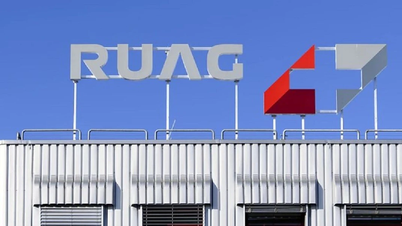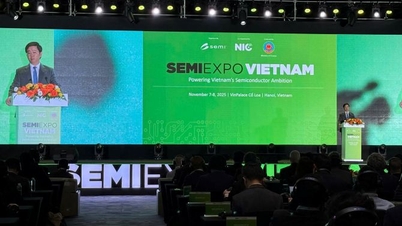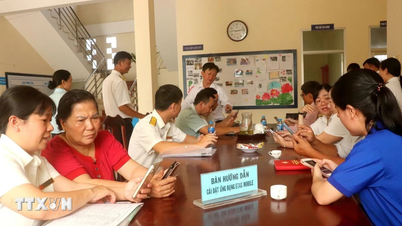Nvidia shares fell 2.6% on September 17 after reports that Chinese regulators had banned domestic technology companies from buying some chips from the artificial intelligence (AI) giant.
The Financial Times (FT) on September 17 quoted a source familiar with the matter as saying that the Cyberspace Administration of China has asked companies, including ByteDance and Alibaba, to stop testing and placing orders for the RTX Pro 6000D chip.
The information was released ahead of a scheduled phone call between US President Donald Trump and Chinese President Xi Jinping to discuss trade on September 19. Semiconductor technology is at the center of trade tensions between the two countries.
Following the FT report, analyst Felix Wang of Hedgeye Risk Management said the decision underscored the Chinese government 's efforts to reduce its dependence on US semiconductors, as AI competition with the US intensifies and China pushes for the use of domestic chips and tools.
When asked about the situation in China at a press conference in London on September 17, Nvidia CEO Jensen Huang said Nvidia can only operate in a market when it is welcomed by that country.
He expressed disappointment with the current developments, but also acknowledged that this is part of the broader issues between China and the US, so he said Nvidia will wait patiently.
Mr. Huang has repeatedly stressed the importance of China's AI market, which he sees as a $50 billion and rapidly growing opportunity.
Earlier in April, the Trump administration imposed licensing requirements on semiconductor companies, including Nvidia, when selling their AI chips in China.
During the first-quarter earnings call, Mr. Huang said Nvidia expects to suffer a revenue loss of $8 billion in the second quarter alone due to the inability to sell the H20 AI chip in China.
In June, Nvidia announced it would not include China in its future profit forecasts, as it was essentially shut out of the market.
By July, the Trump administration had reversed course and given semiconductor companies the green light to sell chips back to China. Mr. Huang lobbied the Trump administration to lift the ban on exporting his company’s low-power H20 chips to China in an unprecedented deal.
Under the deal, Nvidia would share revenue from the sale of those chips with the US government. Analysts noted at the time that the deal, which has yet to be finalized, could prompt Chinese companies to turn to domestic chip suppliers because the Chinese government would not want its companies to essentially pay the US government.
In August, Mr. Huang said Nvidia was developing a lower-power version of its latest Blackwell chip line for the Chinese market.
However, as of Nvidia's most recent financial report, the company has yet to sell any products to Chinese customers under this plan, citing delays in implementing President Trump's proposal.
Meanwhile, Chinese chip companies are trying to fill the gap. The Wall Street Journal reported in late August that Alibaba is testing a new chip for AI inference, and a number of prominent Chinese companies are developing alternatives to Nvidia’s H20 chip for that market.
China's spending on AI cloud services is accelerating, said Jefferies analyst Edison Lee.
In a report earlier in September, the analyst said capital spending by China's three major cloud providers — Tencent, Alibaba and Baidu — as well as ByteDance, was rapidly catching up with US companies.
However, China's latest ban is still expected to have an adverse impact on the domestic tech ecosystem.
Although companies like Huawei and Alibaba also design their own AI chips, Nvidia is by far the global market leader, and its chips are considered some of the most advanced./.
Source: https://www.vietnamplus.vn/kho-khan-chong-chat-voi-nvidia-sau-lenh-cam-moi-cua-trung-quoc-post1062567.vnp



![[Photo] Da Nang: Hundreds of people join hands to clean up a vital tourist route after storm No. 13](https://vphoto.vietnam.vn/thumb/1200x675/vietnam/resource/IMAGE/2025/11/07/1762491638903_image-3-1353-jpg.webp)










































































































Comment (0)